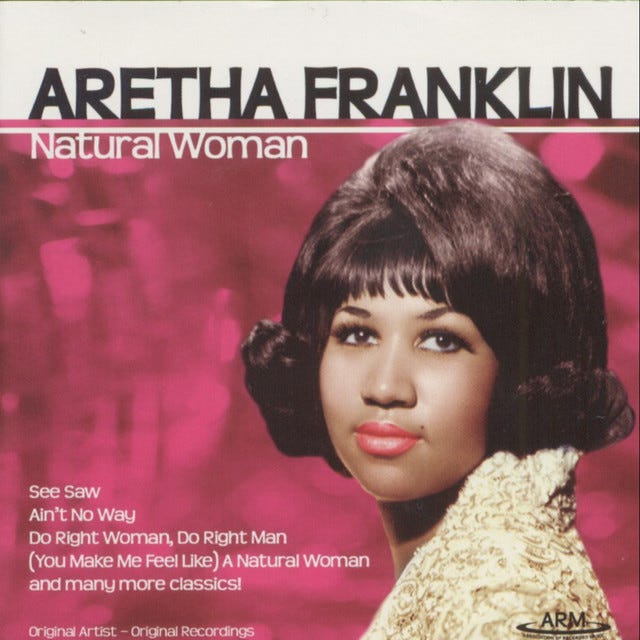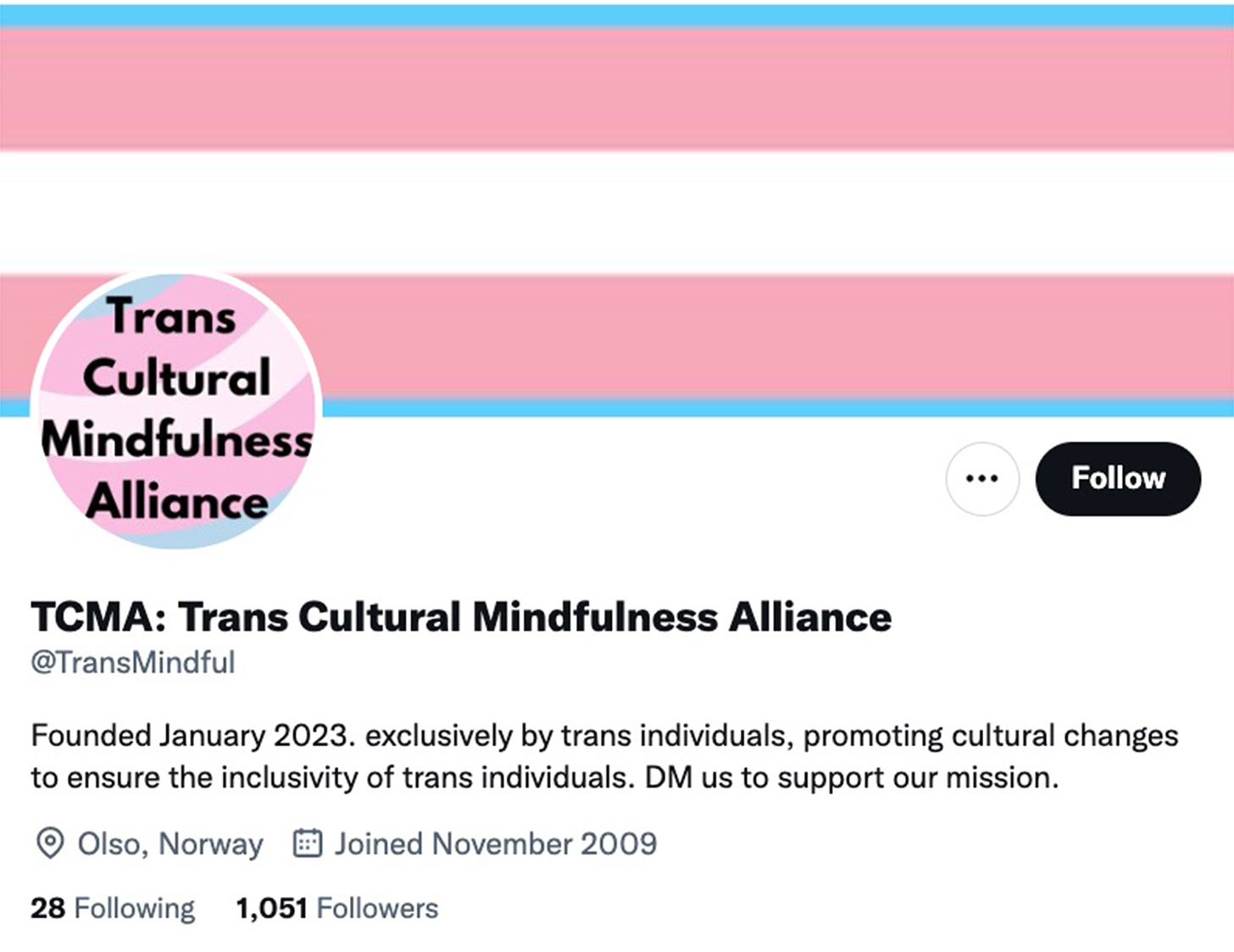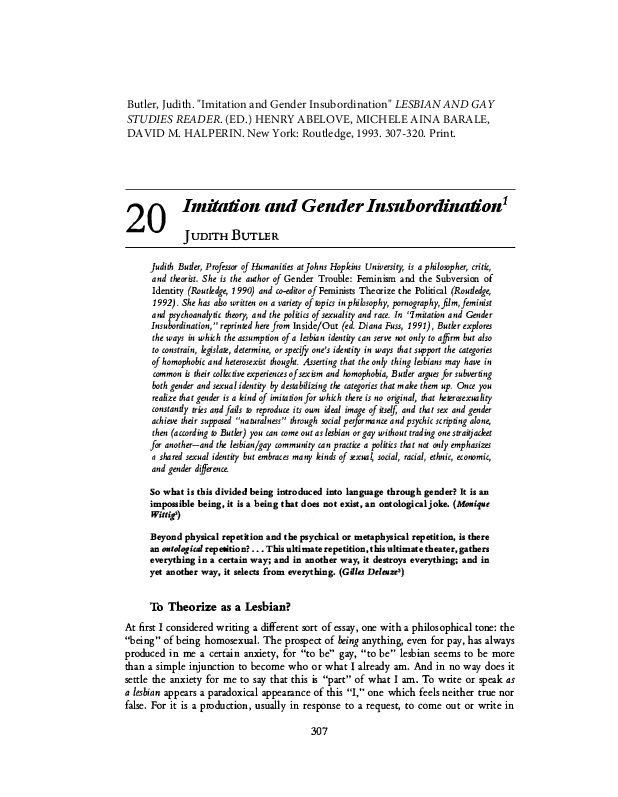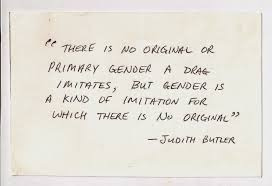Thousands of Women Defend Aretha Franklin’s “Natural Woman”
Biology is back, big time--but it wasn't men who tried to kill it
For at least a few hours, it looked as if the 1960s soul classic “(You Make Me Feel Like a) Natural Woman,” memorably performed by Aretha Franklin, was imperiled by woke attack. Various conservative and right-wing media reported in late January that a trans awareness group was demanding via Twitter that the song be canceled because of its exclusionary emphasis on “natural” womanhood. It was dutifully noted that this was the latest salvo in the trans “assault on women,” and a women’s activist was reported as saying, “I don’t think many women really know how much we’re hated.”
It turned out that the complaint about “Natural Woman,” which received well over one million views and provoked thousands of responses, had been made by a parody account. Aretha Franklin was safe—at least for now. But commentary on the song has a surprising history, as we’ll see, that complicates the standard claims about the trans erasure of women.
The Twitter account at the center of the faux controversy was TCMA, the Trans Cultural Mindfulness Alliance, which began tweeting in January of 2023 to highlight the lunatic fringe of trans advocacy. Many of the tweets by TCMA exaggerate actual trans activist positions so adroitly that even on a second or third reading, they seem plausible. On January 20, for example, TCMA tweeted that “Many children learn gender from their pets,” and advised parents that “Just because you bring home a ‘gendered’ pet, allow your child to choose the gender of the pet—don’t assign it one ‘at will.’”
A day later, TCMA tweeted that it would be petitioning the Norwegian government “to no longer include gender on birth certificates” and it condemned media, in another tweet, for emphasizing child abuse by same-sex couples while failing to cover the “wonton abuse” (steamed or deep fried?!) in the church.
The purpose of the account seems fairly clear: to show how dogmatic statements by activists are often hard to tell apart from parodies of the same. Something strange is going on when people in positions of cultural power not infrequently express themselves in a manner indistinguishable from parody.
The January 20th tweet that made headlines stated that “Aretha Franklin’s 1968 song ‘Natural Woman’ perpetuates multiple harmful anti-trans stereotypes. There is no such thing as a ‘natural’ woman. This song has helped inspire acts of harm against transgender women. TCMA is requesting it is removed from Spotify & Apple Music.”
As parody goes, it was pretty good. The song was actually first released in 1967 and was written by Carole King and Gerry Goffin. But the claim that “There is no such thing as a ‘natural’ woman” fits with now-familiar assertions about gender as a social and cultural construct. The rest of the tweet, about stereotypes inspiring “acts of harm” and needing to be removed from the cultural sphere, is also all too believable. Most of us remember the ludicrous fuss and largely-successful cancellation of “Baby, It’s Cold Outside,” which was alleged to promote rape culture even though the woman in the song was as happy to be persuaded as the man was to persuade. I haven’t heard the song since.
In the parallel case of “Natural Woman,” the clever twist—likely intentional but perhaps serendipitous—lies in the fact that the doyenne of feminist and queer theory, American professor Judith Butler (they/them pronouns) made “Natural Woman” the centerpiece of one of her most famous disquisitions on gender. Like TCMA, Butler focused on the key line “You make me feel like a natural woman.” Rather than denouncing it as false and harmful, however, Butler used the line as evidence of the unnaturalness of womanhood.
In her influential essay “Imitation and Gender Insubordination,” published in The Lesbian and Gay Studies Reader (1993), Butler relied on some rather wire-drawn rhetorical convolutions to argue that the song—and that one line in particular—exposes the effort and artifice of what is being asserted as natural. Whereas “heterosexuality naturalizes itself through setting up certain illusions of continuity between sex, gender, and desire,” the song, Butler claimed, draws attention to the provisionality of such linkages, their need to be continually reaffirmed, and the possibility of slippage. In her words,
“Although Aretha appears to be all too glad to have her naturalness confirmed, she also seems fully and paradoxically mindful that that confirmation is never guaranteed, that the effect of naturalness is only achieved as a consequence of that moment of heterosexual recognition. After all, Aretha sings, you make me feel like a natural woman, suggesting that this is a kind of metaphorical substitution, an act of imposture, a kind of sublime and momentary participation in an ontological illusion produced by the mundane operation of heterosexual drag” (p. 317).
In other words, the proclamation that the woman feels “like” a natural woman suggests that natural womanhood is not so much a biological given as a feeling produced through a specific combination of circumstances and acts. The natural is not simply itself but must be continually produced and reproduced. Achieved rather than possessed, it is little different from the “act of imposture” carried out by the drag queen.
Awareness of the fact of “heterosexual drag,” for Butler, was liberating because all “identity categories” were potential “instruments of regulatory regimes” (p. 308). A central part of any feminist and/or queer resistance, therefore, was to expose gender “as an inevitable fabrication” and “reveal every claim to the origin, the inner, the true, and the real as nothing other than the effects of drag, whose subversive possibilities ought to be played and replayed” (p. 318).
Destabilizing gender by denying “the true and the real,” Butler advised, was a way out of the “regulatory regime” of heteropatriarchal femininity. Butler did not invent this idea out of whole cloth. Much of the terminology and emphasis came from the post-structuralist and psychoanalytic theories of Jacques Derrida and Jacques Lacan, and Butler was also working within a well-established feminist tradition. Before her, there had been a line of biology-denying women that began with Simone De Beauvoir (“One is not born, but rather becomes, woman”) and extended through Andrea Dworkin (“The discovery is, of course, that ‘man’ and ‘woman’ are fictions, caricatures, cultural constructs”), Kate Millett (“Gender role is determined by postnatal forces”), and many other women for whom the notion of the natural was primarily a male plot to deny women’s life possibilities.
Now, the natural is back, and oppressive men are allegedly to blame for its prior evisceration.
Most of those who responded in annoyance to the tweet by the Trans Cultural Mindfulness Alliance fell back on the standard victimhood narrative. They assumed that the author of the tweet was male (“Ironically your tweet shows you have ZERO concept of what it feels like to be a woman”), they were confident that most biological women would rightly be offended by “his” complaint (“Why don’t you ask biological women for their opinion?), and they attributed various characteristics to the assumed male author such as envy of women (“Stop trying to erase natural women just because some men want to be like them”), self-hatred (“There is most definitely such thing as a natural woman, and men are not it. Sorry if you hate yourselves”), and even an affinity with men’s rights activism (“I’m a natural woman, I exist, if that offends your men’s rights group, tough shit”). One tweet pointed out the high level of “misogyny” in the tweet’s rejection of the natural.
How times change; how they remain the same. When attacking gender was perceived to be a blow against heterosexual men’s privileges, it had a glow of righteousness to which few women objected; as soon as it threatened women’s privileges, it became pure evil and was blamed on men.
Butler’s essay on the “inevitable fabrication” of gender shows that what seems a recent development was thoroughly seeded many decades ago: in the gender and queer studies departments of North American universities as well as in the women’s liberation movement. It was not thought up by envious, self-hating men wanting to usurp female identities and erase women; it was thought up by (envious, self-hating?) women wanting to usurp male identities and erase men.
It's interesting, now, to see the rush by women to proclaim themselves “natural” and to boast that women are fundamentally different from men. Biological sex, long slighted or outright denied by the enlightened, has returned in glory. Perhaps we will soon hear that men’s natural masculine qualities are also to be celebrated, their biological roles defended, and their single-sex spaces restored. Well, not likely. Men are to stand with women when female privilege is under assault; but men are not to object when women want men to stand aside or stand down.
Let the “Natural Woman” controversy serve as an object lesson. Women should reconsider the entirety of the gender war that feminism started, particularly its core emphasis on the social construction of gender, on equality for women (though not for men), and on the need to remake masculinity—above all, on its stoking of female resentment. Furthermore, women must stop blaming men for gender trends that women largely pioneered and, until recently, profited from.
Until they do, their complaints about the attack on natural women will ring hollow.







Janice, thanks for another great article! I'm a relatively new subscriber. However, as a fellow Canadian, I want to say that, in my mind, you are a national treasure. Your depth of knowledge regarding the history of feminism is essential to helping us understand the path that led us to where we are today. Hopefully, that understanding will also guide us in shifting course, and give us a chance to move toward a place of relative sanity.
This is not just timely, but important. I knew the trans-madness we are in regarding gender was created by feminists. They fracked gender to liberate themselves from traditional obligations, but fracking is a destructive process that does tremendous damage to the (social) environment. Today, they throw their hands up and wonder how it came to this? They are risible, but it is their very identity as women that protects them from criticism; and like women (by-and-large) refuse to take accountability - because why should they? We have a cultural hangover as a society which means we cannot bear to attack them, even if the old rules no longer apply. And attack them we must. I say "we", but that's really you (and other women) while men like us gratefully cheer you along. You give us hope. Your writing helps us with our grief and sadness. What have we learned from this? Horrible ideas must be not only challenged, they must be mocked as they otherwise lodge, festering in the body - and dislodge, blocking arteries and veins of our society.
I loved a girl once, briefly (draw your own conclusions). It is rare for me to be so enamoured by a young mind so electric and gifted. The next time I saw her was on Twitter, double-mastectomy completed and new name. You see, she's a man now. So I keep the photographs I had of before she engaged in the destruction of her body and remember. This tragedy is permanent and accelerating like a runaway train. Once a bad idea exists in the world, you cannot un-invent it.